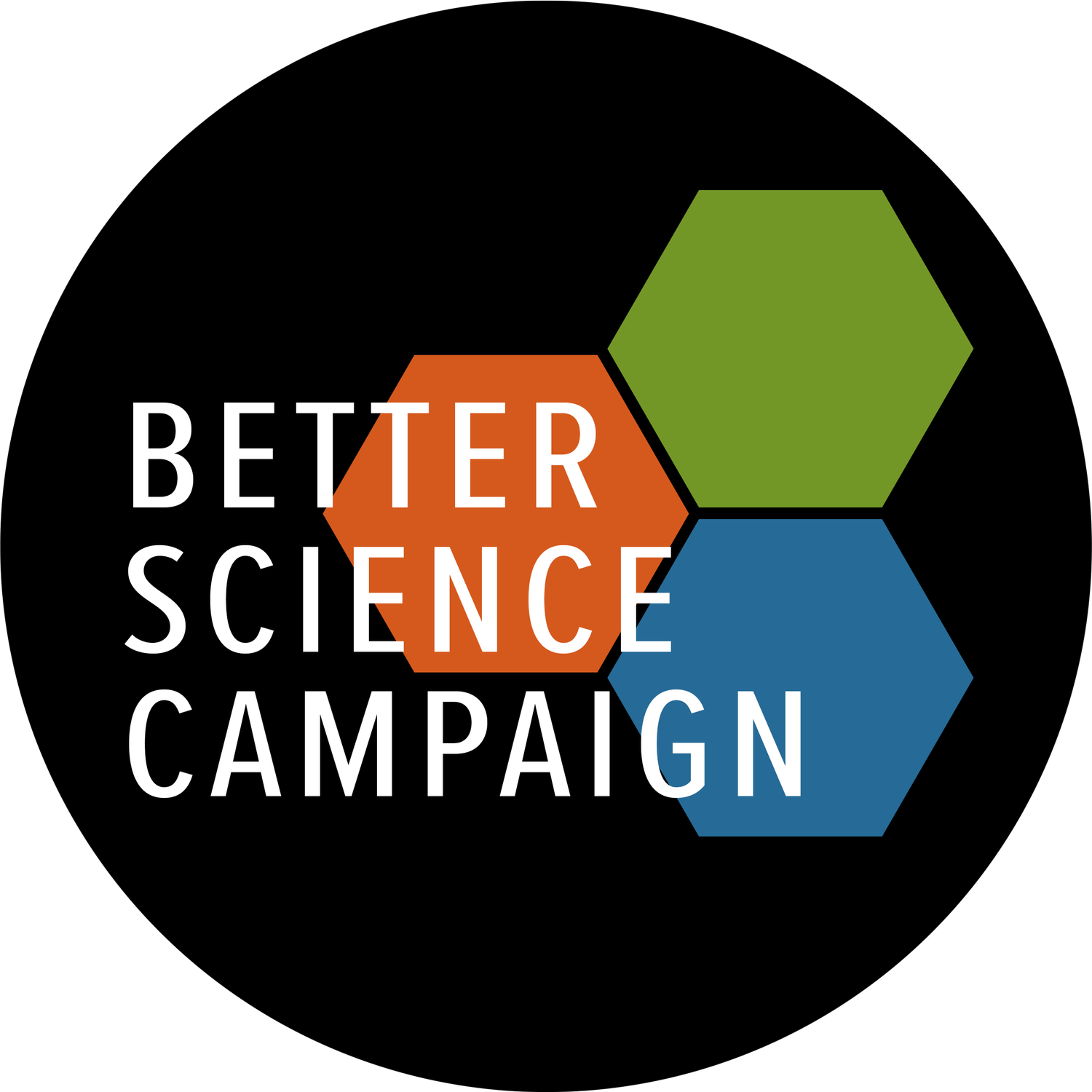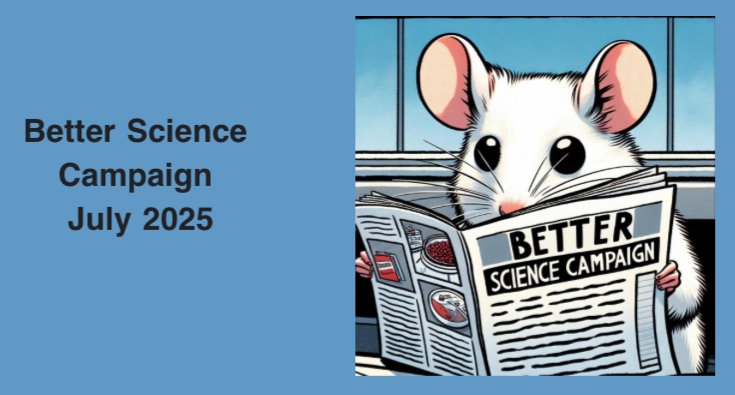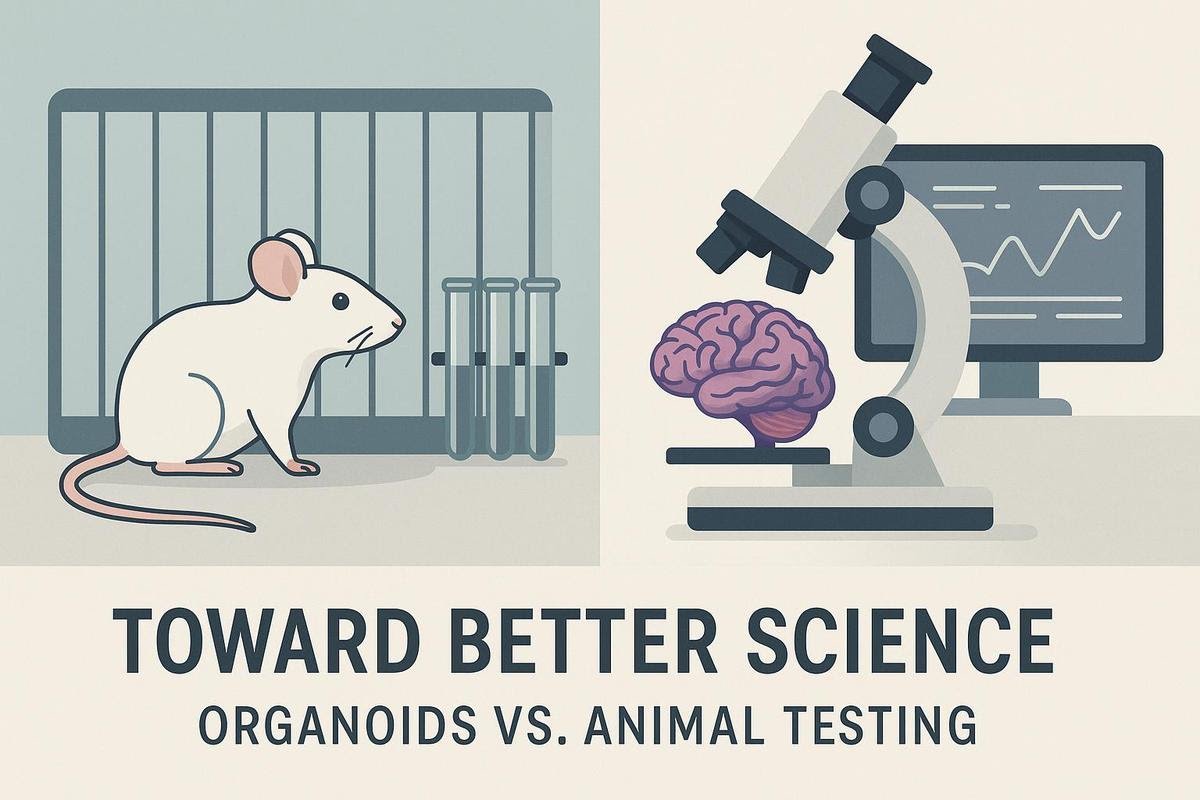BSC July Newsletter
Starting with our next newsletter, we’ll be using a new email address: newsletter@bettersciencecampaign.org. Please be sure to add it to your contacts so you don’t miss any updates from us!
The Better Science Campaign (BSC), is a 501(c)(3) nonprofit organization dedicated to advancing a scientific paradigm that benefits all and protects the vulnerable.
BSC promotes ethical alternatives to animal testing, focusing on collaboration with researchers willing to transition to humane practices. Unlike some groups, we avoid confrontational tactics and emphasize respectful dialogue. Our mission is to work with ethical scientists to eliminate cruel and wasteful animal experiments, prioritizing methods that respect all sentient beings and improve human health. Currently, our efforts are focused on the University of California, Berkeley.
The road ahead for the motion Dane4Dogs filed to dismiss Ridglan Farms' lawsuit.
By Ismael Perez
Digital Marketing Specialist of the Better Science Campaign
According to Channel 3000, "Ridglan points to multiple actions by Dane4Dogs and others as crossing a legal line. The actions include a successful campaign to appoint a special prosecutor to investigate the breeder, complaints filed with the state and federal agencies against the facility, and a letter campaign directed at Ridglan's clients. The Animal Activist Legal Defense Project (AALDP) states that the First Amendment protects those actions and has called Ridglan's lawsuit a Strategic Lawsuit Against Public Participation (SLAPP suit)." The Cornell Law School defines such suits as those "brought by individuals and entities to dissuade their critics from continuing to produce negative publicity. By definition, SLAPP suits do not have any true legal claims against the critics. People bring SLAPP suits because they can either temporarily prevent their critics from making public statements against them or more commonly to make critics spend all of their time and resources defending the SLAPP suits."
Although over 30 states have adopted anti-SLAPP statutes that make it easier for defendants in SLAPP lawsuits to have the case dismissed at the outset, before spending lots of money on attorney fees, Wisconsin does not have any anti-SLAPP statutes. The lack of such legislation leaves Wisconsin vulnerable to SLAPP suits and infringements of Wisconsin residents' First Amendment rights, according to ACLU Wisconsin. According to a press release, Dane4Dogs posted on their Facebook Page, "In its motion, AALDP cites multiple landmark Supreme Court cases that have held that speech and expressive activity in the course of political campaigns are protected by the First Amendment, even when those efforts aim to inflict economic harm. Indeed, other courts that have faced scenarios identical to Ridglan's case have even granted sanctions against the plaintiffs."
Dane4Dogs recommends that those who want to help visit https://www.dane4dogs.org/action to view a list of actions they can take to support the grassroots organization.
🧠 Science Explained
What Are Organoids—And Why Do They Matter?
By Diana Navon
CEO/Founder
In labs across the globe, scientists are growing tiny, living versions of human organs—organoids—from stem cells. These lab-grown structures are opening up new frontiers in medicine, helping researchers model diseases, test treatments, and explore how the human body works. And all of this is happening without the use of animals.
Organoids are three-dimensional, miniaturized tissues that closely resemble parts of the human body, like the brain, liver, lung, or gut. Unlike flat petri-dish cultures or animal models, organoids behave more like actual human organs. That makes them an incredibly powerful—and more ethical—tool in biomedical research.
🔬 A Revolution in Human-Relevant Science
Here’s how organoids are already transforming medical research:
🧠 Alzheimer’s and Autism
Brain organoids have been used to model Alzheimer’s disease by replicating hallmark features like amyloid-beta plaques and tau tangles. Researchers at Harvard and MIT have used vascularized “brain-on-chip” systems to test new Alzheimer’s drugs—something that has failed repeatedly in mice. According to one study:
“For decades, Alzheimer’s research relied on animal models that didn’t develop key human pathologies. Organoids are finally closing that gap.”
— Dr. Rudolph Tanzi, Harvard Medical School
In autism research, cerebral organoids grown from patients’ cells have revealed early disruptions in neuron formation and migration—especially in cases of macrocephaly-related autism. A 2023 study published in Nature used organoids edited with CRISPR to pinpoint how dozens of autism-risk genes interfere with brain development.
🫁 COVID-19 and Lung Health
When the COVID-19 pandemic struck, researchers turned to lung organoids to study how SARS-CoV-2 infects the respiratory system. Organoids allowed them to safely observe viral replication and test antivirals on real human tissue without putting people—or animals—at risk.
🧬 Cancer Treatment
At several major cancer centers, doctors are growing tumor organoids from patients’ biopsy samples to test which treatments will work best for them. Known as “organoid avatars,” these mini-tumors allow for precision oncology—helping patients avoid toxic treatments that might not work.
“It’s like having a practice run before treating the real patient,” says Dr. Hans Clevers, a pioneer in organoid research. “And it spares lab animals unnecessary suffering.”
🧫 Gut, Liver, and Kidney Models
At Stanford, intestinal organoids are being used to study inflammatory bowel disease and test new treatments that target the gut lining. In the Netherlands, researchers developed liver organoids that can detect drug toxicity earlier and more accurately than animal models. Meanwhile, kidney organoids are helping scientists explore polycystic kidney disease and nephrotoxicity.
⚠️ The Limits of Organoids
Organoids are powerful tools—but like all models, they have limitations:
Incomplete systems: Most lack features like blood vessels, immune cells, or nervous system inputs, though researchers are working to integrate these.
Maturity issues: Many organoids represent early developmental stages and may not mimic diseases of aging unless adjusted.
Variability: Different labs use different protocols, which can make replication tricky.
Ethical questions: As brain organoids become more complex, some scientists have raised concerns about the possibility of sentience—a challenge that will require careful oversight.
That said, the field is rapidly evolving. Many labs are combining organoids with organ-on-a-chip technology, AI modeling, and 3D bioprinting to overcome these limitations.
📊 The Case for Change
Animal models have long been used in research—not because they’re ideal, but because they were the best available option. That’s no longer the case. Studies show that over 90% of drugs that pass animal tests fail in human trials, often due to species differences. Organoids, by contrast, offer human-relevant insights from the start.
At the Better Science Campaign, we believe in replacing outdated, unreliable, and inhumane practices with modern tools that benefit both people and animals. Organoids are a shining example of that vision in action.
💬 Join the Movement
Whether you’re a student, scientist, policymaker, or simply someone who cares about animals and public health, this is your invitation: Let’s make science better.
Share this article. Talk to your professors. Ask how UC Berkeley is supporting non-animal research. And if you’re a lab worker or researcher interested in making the switch, we’re here to help.
Better science is possible—and it starts with us.



